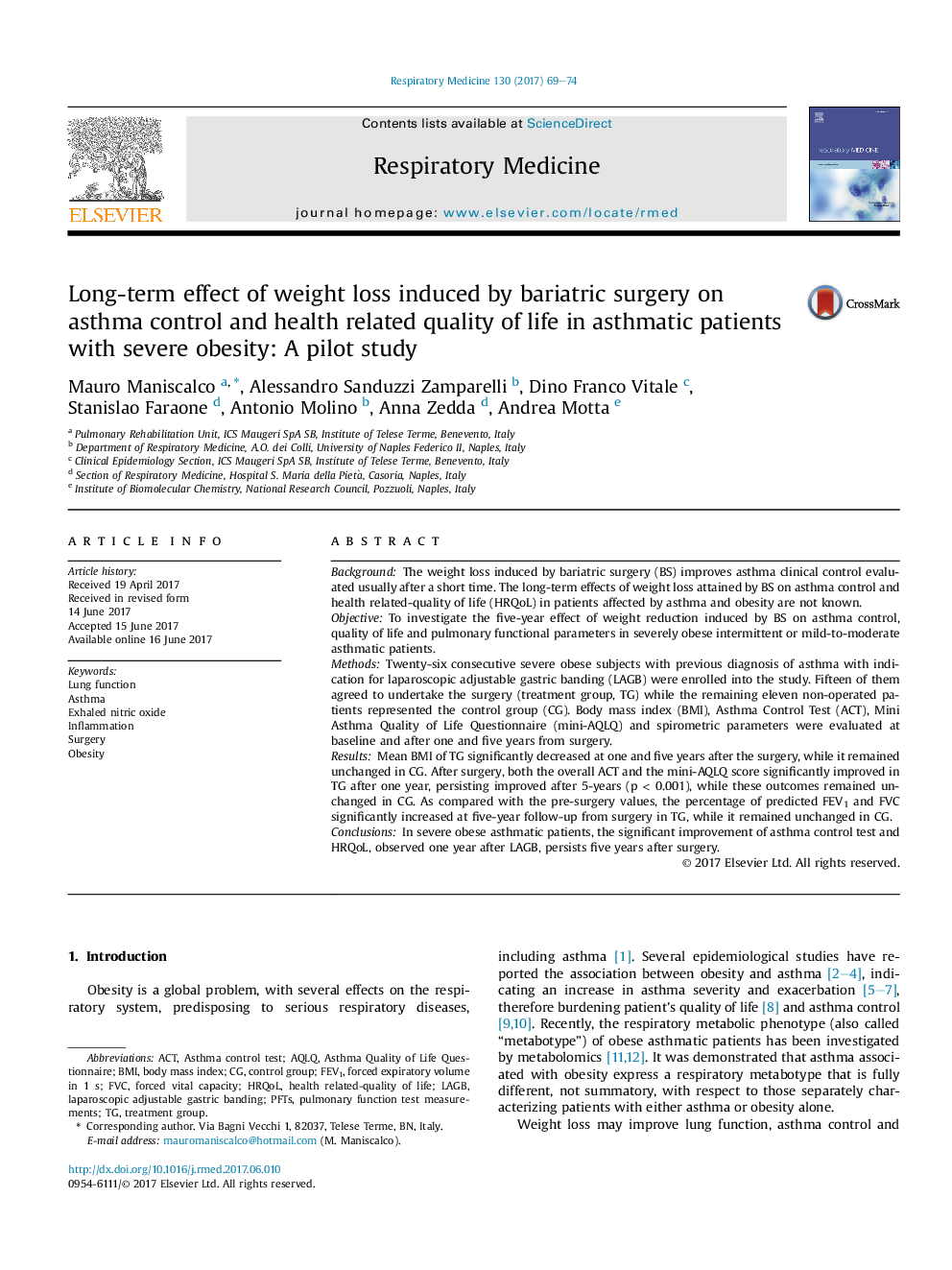| Article ID | Journal | Published Year | Pages | File Type |
|---|---|---|---|---|
| 5724810 | Respiratory Medicine | 2017 | 6 Pages |
BackgroundThe weight loss induced by bariatric surgery (BS) improves asthma clinical control evaluated usually after a short time. The long-term effects of weight loss attained by BS on asthma control and health related-quality of life (HRQoL) in patients affected by asthma and obesity are not known.ObjectiveTo investigate the five-year effect of weight reduction induced by BS on asthma control, quality of life and pulmonary functional parameters in severely obese intermittent or mild-to-moderate asthmatic patients.MethodsTwenty-six consecutive severe obese subjects with previous diagnosis of asthma with indication for laparoscopic adjustable gastric banding (LAGB) were enrolled into the study. Fifteen of them agreed to undertake the surgery (treatment group, TG) while the remaining eleven non-operated patients represented the control group (CG). Body mass index (BMI), Asthma Control Test (ACT), Mini Asthma Quality of Life Questionnaire (mini-AQLQ) and spirometric parameters were evaluated at baseline and after one and five years from surgery.ResultsMean BMI of TG significantly decreased at one and five years after the surgery, while it remained unchanged in CG. After surgery, both the overall ACT and the mini-AQLQ score significantly improved in TG after one year, persisting improved after 5-years (p < 0.001), while these outcomes remained unchanged in CG. As compared with the pre-surgery values, the percentage of predicted FEV1 and FVC significantly increased at five-year follow-up from surgery in TG, while it remained unchanged in CG.ConclusionsIn severe obese asthmatic patients, the significant improvement of asthma control test and HRQoL, observed one year after LAGB, persists five years after surgery.
